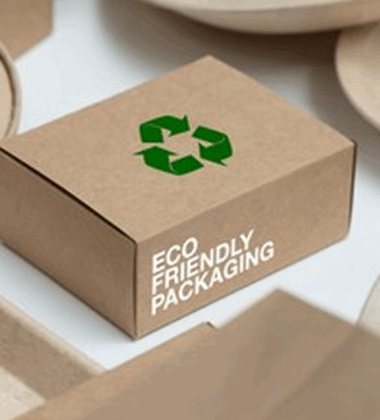In today’s health-driven food landscape, consumers are looking beyond traditional wellness goals like weight management and heart health. A growing demographic is now prioritizing cognitive performance, mental clarity, mood regulation, and long-term brain health—ushering in a powerful new category in functional foods: brain health foods.
This shift has placed neuro-nutrition at the center of innovation. From nootropic beverages to adaptogenic snacks, the food and beverage industry is witnessing a surge in products designed not just to nourish the body, but to optimize the brain. At the upcoming Global Products Expo, taking place from June 26–28, 2025, at the New Jersey Expo Center, expect to see this category take center stage.
In this trend report, we’ll explore how brain health foods are reshaping consumer expectations, what ingredients are gaining traction, and how product developers and wellness brands can tap into the neuroscience of eating for cognitive health.
What Are Brain Health Foods?
Brain health foods are nutritional products formulated with ingredients shown to support mental focus, memory, mood balance, and long-term cognitive resilience. Unlike traditional health foods, these products go beyond physical benefits to directly target functions of the central nervous system.
They often feature:
- Omega-3 fatty acids (especially DHA)
- Adaptogens like ashwagandha and Rhodiola
- Nootropics, both natural (e.g., L-theanine) and synthetic
- Antioxidants like flavonoids from blueberries, dark chocolate, or green tea
- Choline-rich compounds from egg yolks or soy
- Vitamin B complexes, particularly B6, B9 (folate), and B12
- Magnesium and other neuro-supportive minerals
The result is a category that spans smoothies, snacks, bars, supplements, and ready-to-drink beverages—all tailored for mental clarity, mood regulation, and neuroprotection.
The Consumer Shift Toward Cognitive Wellness
This trend didn’t emerge in a vacuum. Several macro forces have pushed brain health foods into the spotlight:
1. Mental Health Awareness
The pandemic accelerated global conversations around anxiety, depression, burnout, and digital fatigue. As a result, food is increasingly viewed as a tool for emotional regulation and mental stamina—not just physical health.
2. Work-from-Anywhere Culture
Professionals and students alike are seeking cognitive edge and focus without relying solely on caffeine. This has opened doors for brain-focused snacks and beverages that can be consumed on-the-go, without a crash.
3. Aging Population
Boomers and Gen Xers are proactively looking for ways to prevent age-related cognitive decline. Brain-supportive nutrition is becoming a key pillar of healthy aging, especially in markets like North America, Europe, and East Asia.
4. Biohacking & Wellness Tech
Consumers tracking sleep, heart rate, and stress now expect food to deliver measurable mental performance outcomes. Terms like “nootropics,” “neuroplasticity,” and “cognitive load” are no longer niche—they’re becoming mainstream language for wellness-focused buyers.
Expo Spotlight: What to Expect at the Global Products Expo 2025
At the upcoming Global Products Expo, neuro-nutrition will be featured in multiple forms across product categories. Here’s what product developers and wellness brands should look out for:
Functional Beverages
Expect launches that combine brain health foods like lion’s mane, ginseng, and matcha with clean caffeine sources and L-theanine to promote alertness without anxiety. Think sparkling mushroom sodas and adaptogenic tea tonics designed for the 2 PM slump.
Mood-Boosting Snacks
From magnesium-rich dark chocolate bites to snack bars infused with saffron and vitamin D, food for emotional resilience is on the rise. These SKUs aim to manage cortisol levels, stabilize blood sugar, and reduce stress-induced cravings.
Cognitive Meal Kits
Emerging brands are designing direct-to-consumer kits built around brain-healthy meal planning. Expect high-choline proteins, complex carbs, and omega-3 fats packaged with clear cognitive benefit claims.
Personalized Neuro-Nutrition
With DNA testing, microbiome analysis, and wearable data gaining popularity, some exhibitors are showcasing bio-individual brain food formulations. These include AI-customized supplements or smart meal programs that align with each user’s brain chemistry and lifestyle demands.
Ingredients That Sell: What’s Driving the Brain Food Boom
While the category is growing fast, consumers are becoming more educated—and more skeptical. Success in the brain health foods market requires ingredients backed by science and presented with transparent claims. Here are some of the most in-demand components in 2025:
- Lion’s Mane Mushroom: Boosts nerve growth factor (NGF) and supports neurogenesis.
- Omega-3 DHA (plant- or marine-derived): Supports memory, learning, and emotional regulation.
- L-Theanine (from green tea): Enhances focus and promotes calm alertness when paired with caffeine.
- Magnesium Glycinate: Reduces anxiety and improves sleep quality.
- Ashwagandha: Adaptogen used to balance cortisol and improve mental resilience.
- Saffron Extract: Shown in clinical trials to help alleviate mild to moderate depression.
- Blueberry Extract: Rich in flavonoids that support brain plasticity and memory.
To stand out at expos and retail shelves, brands must pair these ingredients with transparent sourcing, clinical trial citations, and clear benefit communication.
Packaging and Messaging Trends
It’s not just what’s inside the product that matters—how you communicate it is equally important. The most successful brain health food brands are using the following strategies:
1. Claim Clarity
Move beyond vague terms like “mental performance.” Be specific: “Supports focus for up to 6 hours,” “Formulated to reduce stress-induced snacking,” or “Clinically studied for memory recall.”
2. Clean Label + Cognitive Claim
Today’s wellness consumers expect both. The bar is high: no artificial flavors, no sugar alcohols, and traceable ingredients—plus a verifiable cognitive claim.
3. Packaging Design for Mental Wellness
Brands are leaning into color psychology—calming blues, grounding greens—and fonts that promote ease and calm. QR codes on packaging link to clinical studies or ingredient sourcing.
How to Develop a Brain-Health-Focused Product Strategy
If you’re a wellness brand or product developer looking to enter this category, consider the following roadmap:
- Identify Your User’s Cognitive Pain Point
- Is your product for stress relief, focus, emotional balance, or memory?
- Tailor your formulation to meet that need specifically.
- Choose Science-Backed Ingredients
- Use doses that meet or exceed those used in clinical research.
- Avoid underdosing popular ingredients just for label appeal.
- Design for Routine Integration
- Position the product as part of a daily mental performance ritual—morning energy, afternoon clarity, or evening wind-down.
- Invest in Education
- Use blog content, webinars, expo demos, and QR codes to educate retailers and consumers on ingredient efficacy.
- Collaborate with Mental Health Advocates
- Partnering with psychologists, neuroscientists, or brain-health influencers builds trust and content authority.
The Global Opportunity for Brain Health Foods
According to recent market analyses, the global functional food market focused on cognitive health is expected to grow at over 8% CAGR through 2030. North America and Europe currently lead, but Asia-Pacific is rising rapidly, especially in countries where traditional herbal medicine intersects with modern wellness.
At the Global Products Expo, brain health brands that successfully balance science, sensory appeal, and ethical sourcing will dominate retailer interest. This is not just a passing trend—it’s a structural shift in how consumers view food and mental wellness.
Final Thoughts
The future of food is not only functional—it’s focused. As mental clarity becomes as important as physical energy, brain health foods are emerging as a category with high demand, rich storytelling potential, and measurable outcomes.
For functional food brands, this is the moment to innovate with intention. From expo floor demos to global product launches, neuro-nutrition will continue to be a major growth engine in wellness food strategy.
Make sure your brand has a seat at the brain food table—because cognitive wellness is no longer optional; it’s the new standard.
https://visitors.globalproductsexpo.com/





